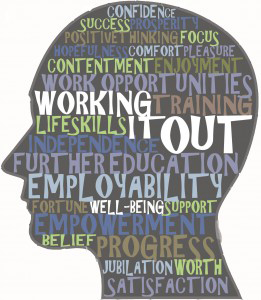Need urgent help? Please contact one of these agencies
Samaritans - 116 123
Lifeline - 0808 808 8000
Childline - 0800 1111



 When most people think about “health” they conjure up images that are related to physical health. Physical health is anything that has to do with our bodies; it has been the basis for numerous active and healthy eating campaigns. It is surprising therefore that the importance of our mental health continues to be relatively overlooked. Mental Health is something that we all have to look after; it is not just relevant to those who are affected by mental ill health. Mental Health is something that we all have to look after; it is not just relevant to those who are affected by mental ill health. Mental health related to our thoughts, feelings and beliefs about ourselves and the world around us. Aspects of positive mental health include feeling good about ourselves and others, having the resilience to cope with life’s ups and downs and feeling able to make a contribution to the society in which we live.
When most people think about “health” they conjure up images that are related to physical health. Physical health is anything that has to do with our bodies; it has been the basis for numerous active and healthy eating campaigns. It is surprising therefore that the importance of our mental health continues to be relatively overlooked. Mental Health is something that we all have to look after; it is not just relevant to those who are affected by mental ill health. Mental Health is something that we all have to look after; it is not just relevant to those who are affected by mental ill health. Mental health related to our thoughts, feelings and beliefs about ourselves and the world around us. Aspects of positive mental health include feeling good about ourselves and others, having the resilience to cope with life’s ups and downs and feeling able to make a contribution to the society in which we live.
Young people face many challenges and difficulties as they strive to develop this independence and sense of identity whilst undergoing physical and emotional change.
They also face a range of pressures and stresses relating to academic performance, relationships, body image and peer pressure.
It is importance to manage this pressure and stresses effectively as they have the potential to act as triggers for later mental health difficulties.
One of the difficulties that parents and carers face is discerning between the normal moods of a young person and mental health problems. It is important to note that any change in behaviour that is unusual of out of character for an individual may be a cause for concern and indicate the presence of a problem. There are some general signs and symptoms which may alert you to the fact that a young person is experiencing mental health difficulties.
Changes to look for include:
Signs and symptoms will vary between individuals. If any of the symptoms persist for more that a few weeks, are so severe that they interfere with the young person’s day to day life, or that present a significant change in an individual’s usual pattern of behaviour, may therefore indicate cause for concern and should be explored to determine their meaning.
If you are a parent of carer who is concerned about a young person:
AMH MensSana is an advice and information service that is available to young people and their key contacts in relation to mental health issues. If you are a young person, a parent of carer and you would like further information on particular issues relating to mental health, please contact MensSana on 02838392314 or email [email protected] (confidentiality will be maintained at all times).